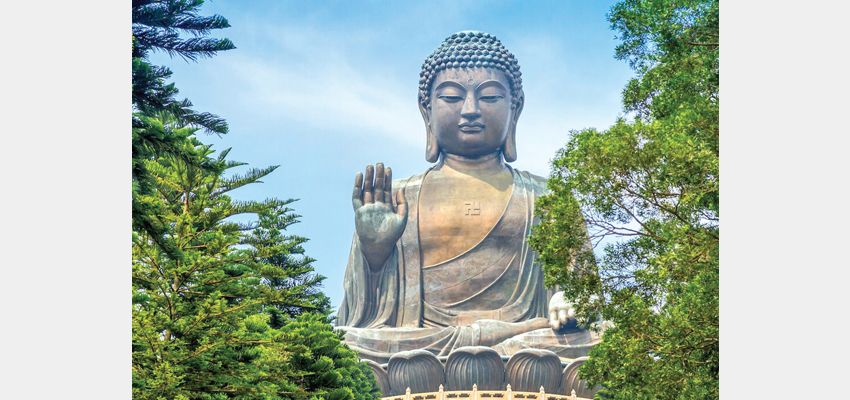Wholesome Exchanges Of The Heart

There are three wholesome exchanges that reflect the wisdom of Buddha’s teachings, which are specific ways in which we interact with others that can bring about transformative change within ourselves.
Without mindfulness and humility, it is quite easy to make unskillful choices about the people we allow to influence us
There are Three Wholesome Exchanges that reflect the wisdom of the Buddha’s teachings. These exchanges are specific ways in which we interact with others that can bring about transformative change within ourselves. You may recognise the exchanges as needs or instincts you may have felt at various times in your life. Have you ever felt the need to be called forth by someone or something that will lead you to step forward and meet the challenges that prevents you from embodying your largest capacities? Have you ever felt the need to be witnessed to feel seen and have your struggles, capacities, and innate worth be reflected by another? Have you ever felt the call to share your knowledge and hard earned wisdom of knowing what really matters? Each of these deep psychic urges represents an exchange of the heart where your larger capacity of consciousness is being evoked. When we can share our gifts and accept the intrinsic worth of others, we can find more depth, meaning, and joy in our lives.
How can we utilise mindfulness and intention to identify and cultivate each Wholesome Exchange in a skillful way?
1. The need to be called forth the first of the exchanges is our need to be called forth by someone, or something, or some event. We don’t always automatically respond to and actualise our talents and potential. If we all did this, the world would be a much kinder, gentler place. Being called forth awakens us and is crucial to our blossoming as a human being. Perhaps this calling forth occurred when you were a child. You might have been challenged at a young age by a person or circumstances to find your independence and innate worth.
As an adult, we are all called forth to cease being defined by our childhood experiences. We don’t have to let the conditioned habits that formed from our childhood wounding or even genetics control our behaviour and choices. We are called forth as an adult to find our own voice and make choices that are harmonious with our values. This often does not happen in our society. We are called forth to respond to the inner life in whatever form it may take: spiritual, psychological, or shamanic.
2. The need to be witnessed
The second Wholesome Exchange is the need to be witnessed, which is essentially our need for someone to hear our story and witness the earnestness and sincerity of our aspirations. We all need to have someone hear our fears, failures, triumphs, and dreams. It is an art in itself to serve as a witness. This exchange is essential to our personal and spiritual development because when we are being witnessed, it allows us to really hear our own authentic voice. When we’re alone, it’s often difficult to get a clear sense of what we’re feeling. Some of us are fortunate to have a strong sense of self from an early age but sometimes it takes until our 50s or 60s for this to occur.
3. The need to share what we have learned the third wholesome exchange is our need to share our blessings, knowledge, and gifts. The need to share permeates all cultures at all levels. This impulse to share is hardwired and part of what makes us human beings. It comes from our enthusiasm about what we have known, gratitude for what we have gained, and awe of what we have experienced. This impulse often gets thwarted, distorted, and shut down for one reason or another, or we are not skilled enough to recognise our need to share. To learn how to share skillfully is part of our practice. It’s important not to be attached to what we are sharing and how others will use the knowledge we impart. Keep in mind that when we share our wisdom or knowledge with someone, we have no idea who else will benefit from our sharing and in what way. We don’t know what all the interconnections are, but we know they are vast.
Each of us possesses all three of these heartfelt needs. Mindfulness helps us become aware if one of these three exchanges is being called forth at a given time and helps us determine the appropriate situations and timing to engage in the exchange. Without mindfulness and humility, it is quite easy to make unskillful choices about the people we allow to influence us. We need to use discernment about making sure the person we place our trust in can witness us in a healthy way. Likewise, we need to be mindful about how, when, and with whom we share what we have learned. It is often a quiet inner knowing, an intuitive feeling, that guides us in these subtle areas of human exchange and mindfulness helps us distinguish between ego needs and these genuine inner callings. Learning to be quiet and compassionately present with ourselves is how we find our way in these subtle and potentially transformative levels of human interaction.